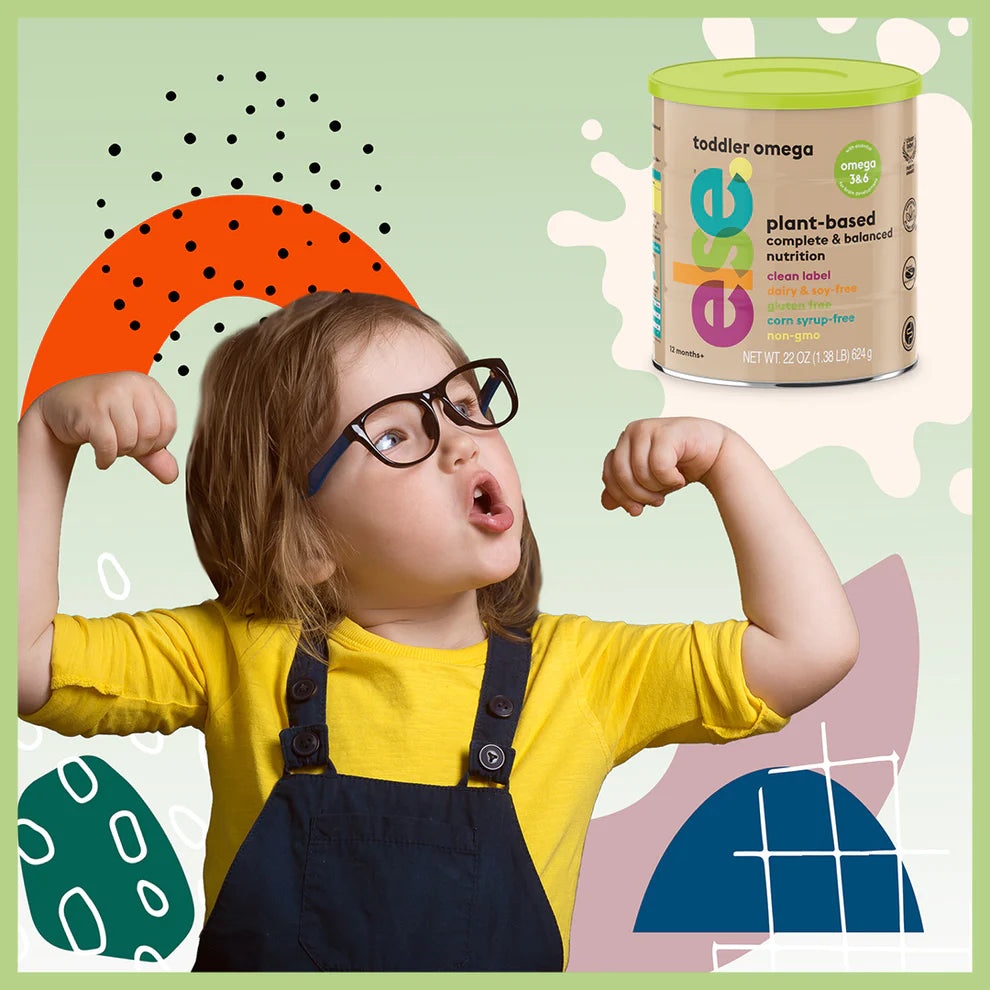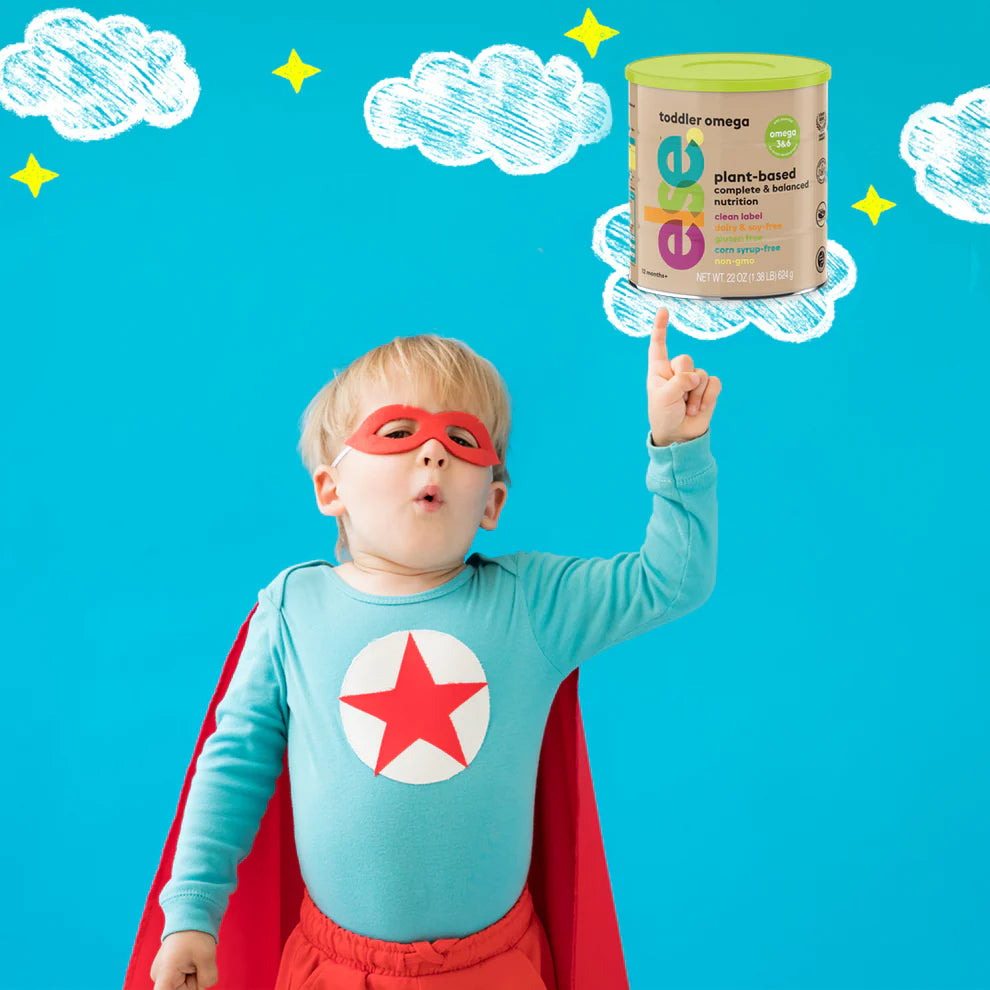
The Top Toddler Formula Choices
Are you wondering if toddler formula is beneficial for your child’s growth? As your little one moves past their first year, you might be considering toddler formula as a supplement to their diet. Toddler formulas are designed to support growing children from 12 to 36 months with nutrients that may not be adequately provided by regular milk or solid foods. B
ut with a marketplace full of options, it’s crucial to understand how to select and use them properly to complement your toddler’s dietary needs. Our guide covers the essentials of toddler formula, including its role in nutritional development, how to choose the right one, and how to integrate it into your child’s meals seamlessly.
Key Takeaways
-
Toddler formulas, designed for children aged 12 to 36 months, are intended to complement a child’s diet by filling nutritional gaps and can offer specialized nutrients such as iron and DHA to support growth and development.
-
It’s important to consult a pediatrician or nutritionist when selecting a toddler formula to meet the specific nutritional needs of your child, as individual requirements can vary.
-
While toddler formulas can be beneficial, especially for children with certain medical conditions, they should not replace a balanced diet and are not intended to be the sole source of nutrition beyond infancy.
Understanding Toddler Formulas: The Basics
Toddler formulas, or as they are otherwise known, toddler milk, growing-up milk, or transitional formulas, are powdered products tailored for children between 12 to 36 months. The market for these formulas, also referred to as toddler drink, began to flourish in the 1990s, targeting children transitioning from breast milk or infant formula.
There’s a distinct difference between infant and toddler formulas. Toddler formulas have varying nutrient concentrations, adapting to the changing nutritional needs of toddlers, including essential nutrients like protein and sodium. These formulas differ from infant formulas in an essential way - they supplement a family diet rather than serving as the sole source of nutrition.
However, toddler formulas should not be mistaken as a replacement for a balanced diet. Instead, they are designed to complement your child’s diet, filling any nutritional gaps that may arise as your child explores new foods. You might wonder how these formulas are designed to cater to the unique nutritional needs of your child as they grow.
Tailored Nutrition for Toddlers
The beauty of toddler formulas, a type of fortified foods, lies in their unique blend of nutrients and milk flavour. These formulas are fortified with added iron, B vitamins, folic acid, and zinc - nutrients that are not typically found in cow’s milk but are essential for a toddler’s healthy growth and development.In addition to these, toddler formulas also come packed with specialized ingredients that offer a range of health benefits. These include elements like 2’-FL that support digestive health, and DHA, which aids in brain and eye development. Such a combination of 27 essential nutrients ensures that your toddler’s overall growth is well-supported.
A lingering question might be how to choose the appropriate formula for your child. We will address this in the ensuing section.
Selecting the Right Toddler Formula for Your Child
Choosing the appropriate formula is a key factor in fulfilling your child’s distinct nutritional needs. For toddlers over 12 months who have digestive, metabolic, or other medical issues, specialized formulas are available.
Bear in mind that each child is different, and their nutritional requirements can vary. Therefore, always consult with a pediatrician or nutritionist before deciding on a toddler formula. This ensures that your child receives the necessary nutrients in the right proportions to support their growth and development.
Preparing and Serving Toddler Formula
After choosing the appropriate formula, correct preparation and serving are crucial. Good hygiene is a must. Ensure to disinfect the preparation surface and wash your hands thoroughly before preparing the formula.Start by pouring the correct amount of cooled boiled water into the bottle, and then add the powdered formula. It’s important to follow the manufacturer’s guidelines for the appropriate water-to-powder ratio.
Once the formula is added, securely attach the bottle’s teat and retaining ring. Shake the bottle to ensure the formula powder is completely dissolved without any undissolved particles. Cool the prepared formula bottle under cold running water and test the temperature on your wrist before serving it to your toddler.
Remember, bacteria can grow rapidly in made-up formula if left at room temperature. So, always discard any unused formula after the feeding is finished.
Having outlined the fundamentals of toddler formulas, we will now examine a specific brand offering a unique, plant-based child nutritional drink with a vanilla flavour as a nutritional supplement among the various formulas marketed.
Else Nutrition Complete & Balanced Toddler Formula: Plant-Based & Pediatrician-Approved

Else™ Toddler formula is a plant-based, Clean Label certified, whole-foods complete & balanced nutritional supplement for toddlers 12 months or older. A unique feature of Else™ Toddler is the inclusion of Omega 3 & 6 fatty acids, and essential amino acids.
These nutrients, along with over 20 essential vitamins and minerals, make Else™ Toddler a comprehensive nutritional supplement that supports your child’s overall growth and development, offering nutritional benefits.
While toddler formulas are invaluable for satisfying your child’s nutritional needs, they should form part of a comprehensive feeding strategy. We will delve into this in more detail in the following section.
Board certified Pediatrician, Dr. Jenn Trachtenberg MD, says, "The first 3 years of life are critical for a child's growth and development. Else can help toddlers balance out their nutrition. It's a Plant-based alternative, made from 3 whole food ingredients. It's organic without highly-processed ingredients. Not only will it give your child the nutrition they need, but it will also give you peace of mind."
Complementary Feeding Strategies
Although toddler formulas can augment your child’s diet as they transition from milk to solid foods, they are not intended to supplant a balanced diet. The term ‘complementary foods’ underlines the continuing importance of breast milk or formula in a toddler’s diet, even when solid foods are introduced.For most toddlers, a combination of cow milk and a balanced diet can meet their dietary needs. However, in cases where human milk is not available, toddler formulas can be beneficial for those with medical conditions requiring specialized nutrition as part of a toddler’s diet.
Bear in mind the importance of caregiver guidance when choosing complementary foods. This guidance ensures appropriate growth and fosters proper eating behaviours alongside toddler formulas.
The transition to more textured foods should be gradual and responsive to your toddler’s hunger and satiety cues.
Navigating Common Concerns and Myths
Although toddler formulas can serve as a valuable supplement, it is necessary to address some common misconceptions and concerns associated with them. One such concern is that toddler formulas are not regulated by the FDA, unlike infant formulas which are closely monitored.Some organizations like the American Academy of Pediatrics do not recommend toddler formulas for healthy growth and development, advising a transition to cow’s milk or soy milk after the first year. There are also concerns about misleading advertising claims regarding their necessity for child development, despite a lack of substantiating evidence.
To steer clear of these potential pitfalls, consulting with a pediatrician when choosing a toddler formula is advisable. This ensures that you avoid formulas that may contain incorrect amounts of protein or added sweeteners, which can have long-term effects on health and taste preferences.
Summary
We’ve covered a lot of ground in understanding the role of toddler formulas in your child’s nutritional journey. From understanding the basics of toddler formulas to navigating common concerns and myths, we’ve delved into the complexities of making informed choices for your child’s nutrition.
Ultimately, the choice to use toddler formulas lies with you, the caregiver. Armed with this knowledge, you are better equipped to make informed decisions that support your child’s growth and development. After all, every milestone in your child’s journey is a celebration of their unique growth, and it’s up to us to make sure they are nourished every step of the way.

Frequently Asked Questions
What are toddler formulas?
Toddler formulas, also known as toddler milk or growing-up milk, are powdered products specifically tailored for children between 12 to 36 months. These formulas are designed to provide essential nutrients for toddlers' growth and development.
How do toddler formulas differ from infant formulas?
Toddler formulas differ from infant formulas by having varying nutrient concentrations that adapt to the changing nutritional needs of toddlers. They are designed to supplement a family diet rather than serving as the sole source of nutrition.
Are toddler formulas necessary for healthy growth and development?
Toddler formulas can supplement a toddler's diet during the transition from milk to solid foods, but they are not a replacement for a balanced diet. Therefore, they are not necessary for healthy growth and development.
Are toddler formulas regulated by the FDA?
No, toddler formulas are not regulated by the FDA, unlike infant formulas.
The content and advice provided in this article is for informational purposes only and is not a substitute for medical diagnosis, treatment, advice for specific medical conditions. Always consult a pediatrician to understand the individual needs of your child. The article expresses solely the views of the article editor.


